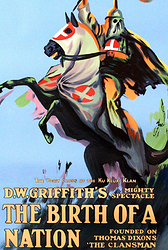It’s fairly recent (released mid-pandemic) but Barry Brown’s Son of the South, is the best Civil Rights era film I’ve seen. It’s a biopic of Bob Zellner, the only white SNCC organizer, set in Montgomery just before and during the first Freedom Ride. Zellner is still alive, still an activist, and still a brave and fascinating character. All those college students who showed up for Freedom Sumner? A lot of that happened because of Zellner’s SNCC recruiting campaign across college campuses. That white guy standing next to Julian Bond in Danny Lyon’s SNCC photos? That’s Bob Zellner.
You might be suspicious of a Civil Rights movie that features a young white guy (even if the film is produced by Spike Lee and Brown is Lee’s long time editor) but arguably tackling that, um, problem is what makes the film great. Zellner’s family were Klan members and he came very close to being lynched more than once, by his own family. Zellner, before converting, embodied casual Southern white supremacy. Brown’s detailed portrayal of Montgomery’s everyday white racism is what’s missing from many other fictional and documentary accounts of the Civil Rights movement. Brown makes it clear that it wasn’t just the racists who were racist. It wasn’t just Bull Connor and George Wallace doing the hating, it was, top to bottom, systemic racism, embraced by ministers, community leaders of all kinds, kids, radio DJs, and integral to the culture, worship, and business of Montgomery.
Son of the South is the first Civil Rights film I’ve seen that details a white riot. Everyday white Montgomery citizens, whipped into a frenzy by right wing, Christian, anti-Communist radio, assisted by well-organized local police, met the first Freedom Ride bus and beat everyone involved to a pulp. The police were there to make sure reporter’s cameras are smashed (which is one reason we don’t have many photos of white anti-civil rights riots) and no one is killed on the spot (to avoid negative Northern press). It’s a scene–a scene repeated throughout the South during the early Civil Rights era–that is missing from many movies (even documentaries) covering similar ground.
Son of the South is also brilliantly cast. There aren’t a lot of huge stars but the characters–black, white, and otherwise–to this Southerner, look and feel more like the early 60s Deep South than any movie I’ve seen. Julia Ormond as Virginia Foster Durr is my fave but Cedric the Entertainer’s Rev. Abernethy is a close second. Oh, and Dexter Darden is brilliant as John Lewis. Brian Dennhey (in his last role) plays Zellner’s Grand Wizard granddad.
Son of the South, recommended King Day viewing!


